#2 things that don't exist in roddenberry's future vision: chest hair & hair loss
Text
At the risk of being a contrarian (because I have browsed the tag, I've seen the complaints), The Deadly Years isn't entirely out of character for Jim Kirk. It's just that we get to see him at his worst again.
Back in season 1, the Conscience of the King shows that he will pull rank on both Spock and McCoy--the two people on the entire ship that Kirk allows himself to be closest to--to keep them out of his life and to shut down their concerns for his well-being. Kirk is not sick or inhibited by anything in this episode (other than haunted by his past). His decision to use the Enterprise to transport the acting troupe doesn't delay a mission or risk lives outside of the Enterprise, although it does inadvertently endanger one member of his crew (Lt. Riley). In other words, he acts selfishly in this episode and lashes out towards those who want to help, much like he does in The Deadly Years.
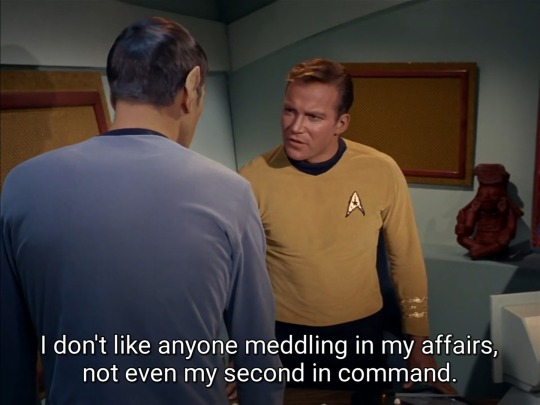
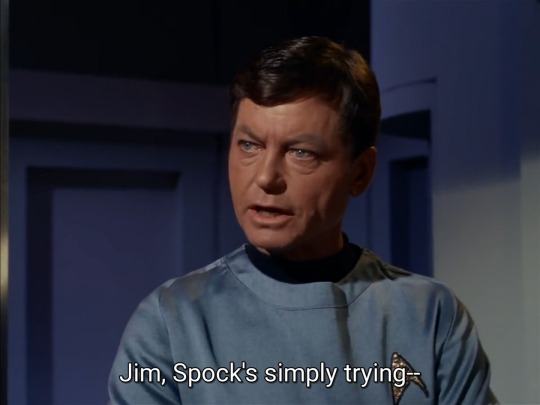
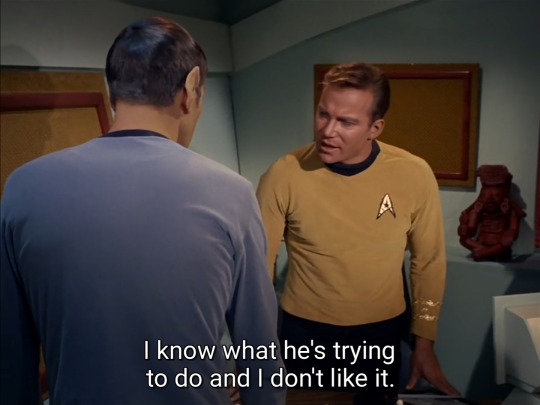
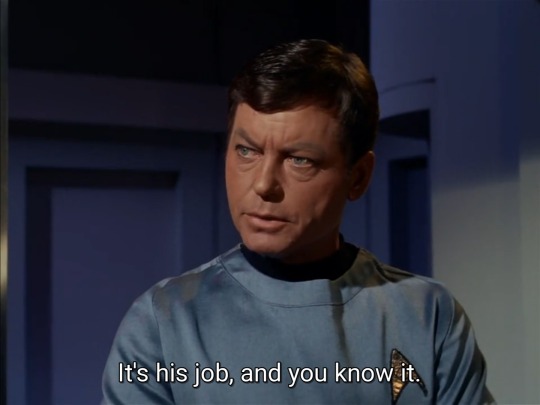
Earlier in the season, The Galileo Seven shows that Kirk will reassert his authority as captain to put off completing a mission to deliver emergency medical supplies to Makus III and aid a colony overrun by a plague because he has "standing orders" to investigate quasars. This mission is ordered by Galactic High Commissioner Ferris, which the Enterprise is transporting to oversee the supply transfer. Ferris himself later states that he outranks Kirk and can cite regulation to support his taking command of the ship to complete the mission once Kirk makes it clear he intends to take 2 full days to locate and retrieve the Galileo's crew rather than use those days to get to Makus III. This situation is interesting in that it shows how Kirk can respond negatively to those holding authority over him, especially when those same people question his decisions. Ferris is technically correct when he argues that the Galileo did not need to be launched to begin with, given how Kirk would rather trade the life of a colony for the lives of seven crew members.
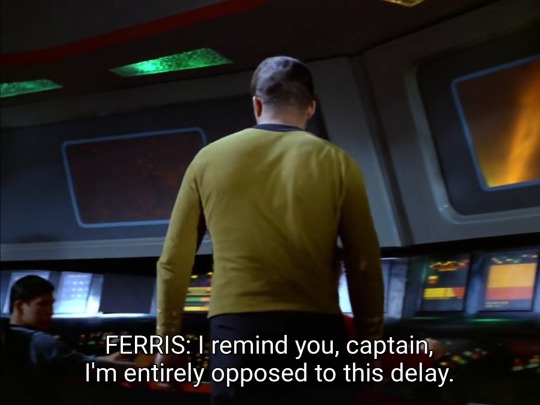
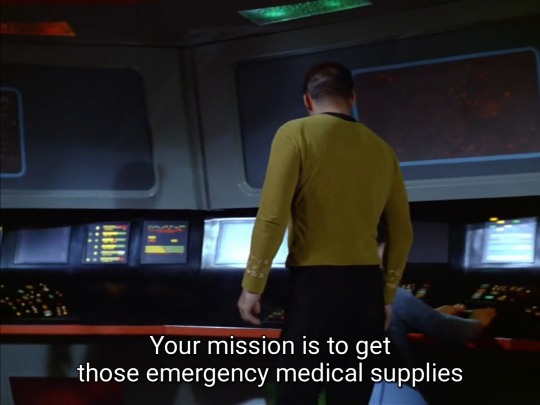
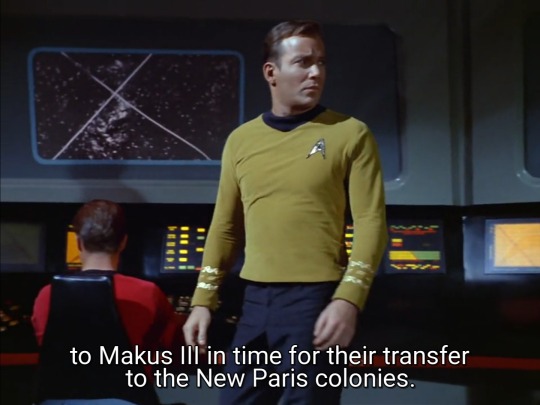
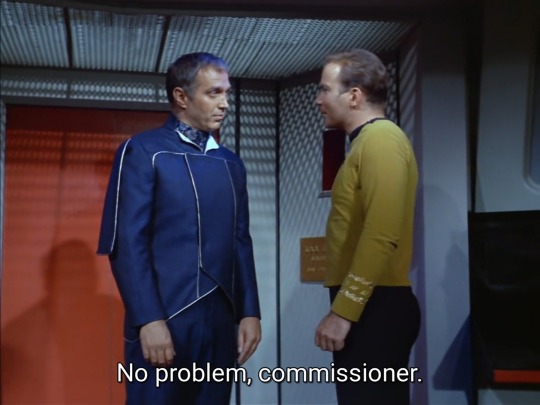
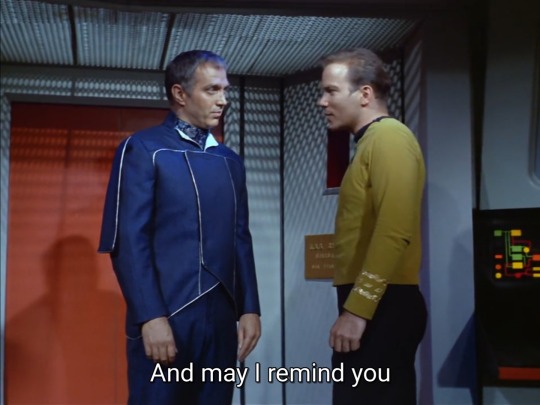
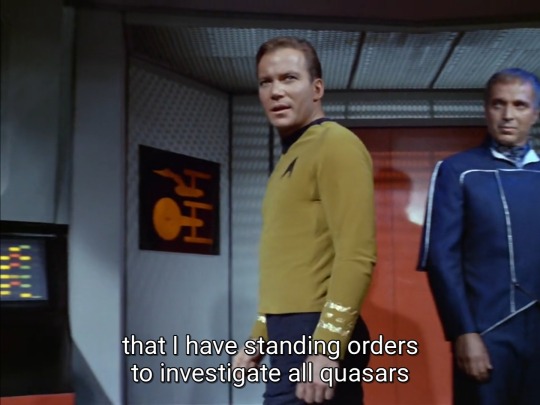
I realize TOS is inconsistent about background details with how Starfleet operates owing to its standalone story structure, and this instance of "standing orders" is yet another case of that structure hindering the world building. While Kirk doesn't follow the Prime Directive even at the best of times (best of times being the absence of a cult. I'll grant him that exception), he will ignore a high galactic commissioner to follow "standing orders" all of a sudden because, at his core, Kirk doesn't want to follow orders. He's the captain. He's supposed to be the one in charge. If he's a perfectionist (his guilt at losing crew members during missions to the point of Spock having to console him, although this also comes from his survivor's guilt from Tarsus IV), it wouldn't surprise me a bit if he has control issues alongside it. In other words, for all the good Kirk tries to do and strives to do, he is still just as capable of acting selfishly and in his own best interests, and he has done so since the start of the series.
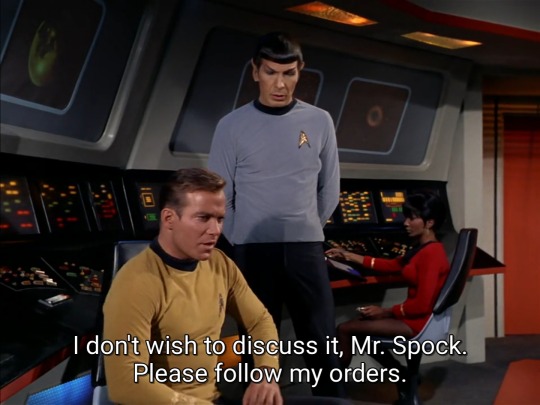
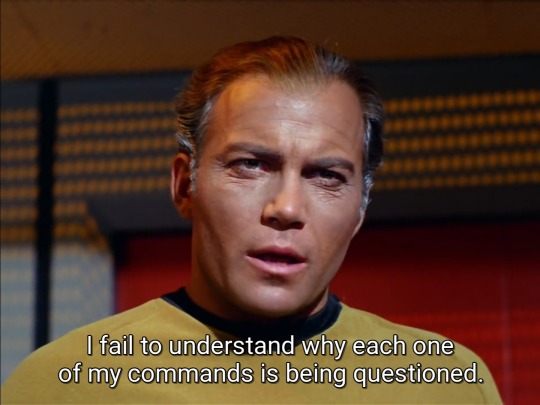
More to the point of The Deadly Years, aging is not always painless or graceful. We get to see Kirk starting to forget recent events and commands (forgetting recent events and conversations is one of the first symptoms of Alzheimer's disease) to the point that he is an active risk to the safety of the crew. Of course, he will be in denial about it, to the point of anger and deflection. It's a painful thing to reckon with, to live in a body that doesn't work like you know it should, and to have others place judgments onto you for it because they're in perfect health. Not everyone can accept that with grace. This doesn't make Kirk out-of-character. It makes him human.
#star trek tos#jim kirk#the deadly years#the conscience of the king#the galileo seven#idk. watching a rapidly aging kirk brought back caregiving memories#like idk how else to put it. aging isn't terrible but not everyone is lucky to get to their 90s in good health#and idk. the more i watch and reflect the more i keep realizing the nuances of his character#like if jim kirk represents ethos then it's his decisions that make him who he is. his choices can be good or bad just like anyone else's#but he does overwhelmingly choose to be good#anyways ngl my original post about the deadly years was going to be complaining about kirk's magical hairline and the lack of balding#like. hair loss happens with age yet only 1 of them showed signs of it#2 things that don't exist in roddenberry's future vision: chest hair & hair loss#tos parallels#trek meta
72 notes
·
View notes